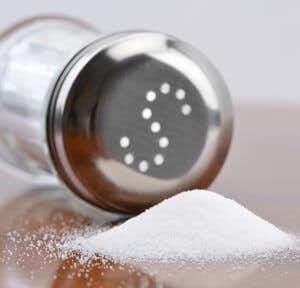
Q. I cut my salt intake many years ago, just for good health. Now I have low sodium in my blood and suffer from low blood pressure and fainting spells.
When I needed surgery, the surgeon was concerned about my low sodium level and its effect on healing. I have had three doctors advise me to eat more salt! How can this be?
A. Public health organizations like the CDC, the American Heart Association and the FDA have all recommended that people limit salt intake to reduce the risk of high blood pressure, heart and kidney disease or stroke. Guidelines suggest that most middle-aged people should not exceed 1,500 mg of sodium daily. That’s less than a teaspoon of salt daily.
A recent study in The New England Journal of Medicine (Aug. 14, 2014) involving 17 countries and more than 100,000 participants determined that fewer than 4 percent achieved a sodium intake in that range.
A daily intake of 3,000 to 6,000 mg of sodium a day “was associated with a lower risk of death and cardiovascular events [heart attacks, strokes] than was either a higher or lower estimated level of intake.”
When sodium levels are too low, stress hormones kick in to conserve this vital mineral. That can have negative health consequences. You should follow your doctor’s advice to get a bit more salt in your diet. This is a great example of the Goldilocks effect, where you want neither too much nor too little.

